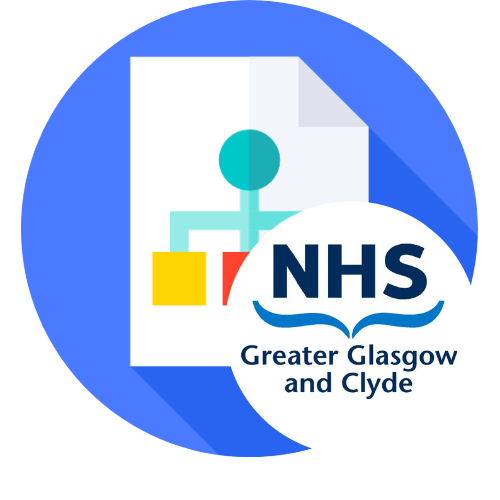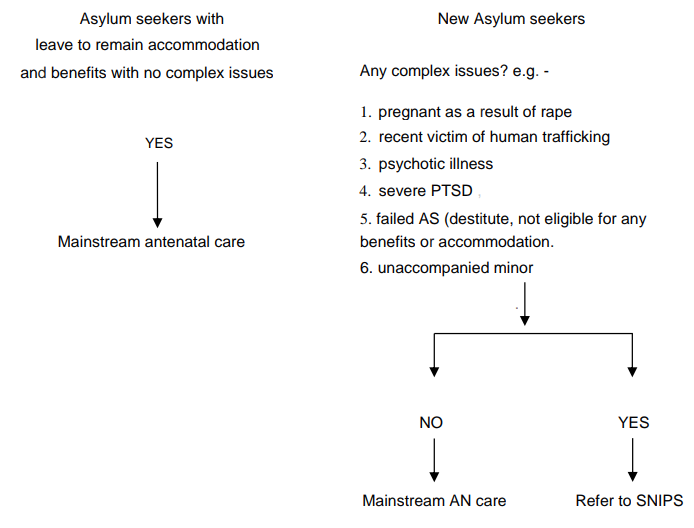Right Decision Service newsletter: September 2024
Welcome to the Right Decision Service (RDS) newsletter for September 2024.
1.Business case for permanent provision of the Right Decision Service from April 2025 onwards
This business case has now been endorsed by the HIS Board and will shortly be submitted to Scottish Government.
2. Management of RDS support tickets
To balance increasing demand with available capacity and financial resource, the RDS team and Tactuum are now working together to implement closer management of support tickets. As a key part of this, we want to ensure clear, timely and consistent communication with yourselves as requesters.
Editors will now start seeing new messages come through in response to support ticket requests which reflect this tightening up and improvement of our processes.
Key points to note are:
2.1 Issues confirmed by the RDS and Tactuum teams as meeting the critical/urgent and high priority criteria will continue to be prioritised and dealt with immediately.
Critical/urgent issues are defined as:
- The Service as a whole is not operational for multiple users. OR
- Multiple core functions of the Service are not operational for multiple users.
Example – RDS website outage.
Please remember to email ann.wales3@nhs.scot and his.decisionsupport@nhs.scot with any critical/urgent issues in addition to raising a support ticket.
High priority issues are defined as:
- A single core function of the Service is not operational for multiple users. OR:
- Multiple non-core functions of the Service are not operational for multiple users.
Example – Build to app not working.
2.2 Support requests that are outwith the warranty period of 12 weeks since the software was originally developed will not be automatically addressed by Tactuum. The RDS team will consider these requests for costed development work and will obtain estimate of effort and cost from Tactuum for priority issues.
2.3 Support tickets for technical issues that are not classified as bugs will not be automatically addressed by Tactuum. The definition of a bug is ‘a defect in the software that is at variance with documented user requirements.’ Issues that are not bugs will also be considered for costed development work.
The majority of issues currently in support tickets fall into category 2 or 3 above, or both.
2.4 Non-urgent requests that require a deployment (i.e a new release of RDS) will normally be factored into the next scheduled release (currently end of Nov 2024 and end of Feb 2025) unless by special agreement with the RDS team.
Please note that we plan to move in the new year to a new system whereby requests all come to an RDS support portal in the first instance and are triaged from there to Tactuum when appropriate.
We will be organising a webinar in a few weeks’ time to take you through the details of the current support processes and criteria.
3. Next scheduled deployment.
The next scheduled RDS deployment will take place at the end of November 2024. We are reviewing all outstanding support tickets and feature requests along with estimates of effort and cost to determine which items will be included in this deployment.
We will update you on this in the next newsletter and in the planned webinar about support ticket processes.
4. Contingency arrangements for RDS
Many thanks to those of you who attended our recent webinar on the contingency arrangements being put in place to prevent future RDS outages as far as possible and minimise impact if they do occur. Please contact ann.wales3@nhs.scot if you would like a copy of the slides from this session.
5. Transfer of CKP pathways to RDS
The NES clinical knowledge pathway (CKP) publisher is now retired and the majority of pathways supported by this tool have been transferred to the RDS. Examples include:
NHS Lothian musculoskeletal pathways
NHS Fife rehabilitation musculoskeletal pathways
NHS Tayside paediatric pathways
6. Other new RDS toolkits
Include:
Focus on frailty (from HIS Frailty improvement programme)
NHS GGC Money advice and support
If you would like to promote one of your new toolkits through this newsletter, please contact ann.wales3@nhs.scot
To go live imminently:
- Focus on dementia
- NHS Lothian infectious diseases toolkit
- Dumfries and Galloway Adult Support and Protection procedures
- SIGN guideline – Prevention and remission of type 2 diabetes
7. Evaluation projects
We have recently analysed the results of a survey of users of the Scottish Palliative Care Guidelines toolkit. Key findings from 61 respondents include:
- Most respondents (64%) are frequent users of the toolkit, using it either daily or weekly. A further 25% use it once or twice per month.
- 5% of respondents use the toolkit to deliver direct patient care and 82% use it for learning
- Impact on practice and decision-making was rated as very high, with 80% of respondents rating these at a 4-5 on a 5 point scale.
- Impact on time saving was also high, with 74% of respondents rating it from 3-5.
- 74% also reported that the toolkit improved their knowledge and skills, rating these at 4-5 on the Likert scale
Key strengths identified included:
- The information is useful, succinct, and easy to understand (31%).
- Coverage is comprehensive (15%)
- All information is readily accessible in one place and users value the offline access via mobile app (15%)
- Information is reliable, evidence-based and up to date (13%)
Users highlighted key areas for improvement in terms of navigation and search functionality. The survey was very valuable in enabling us to uncover the specific issues affecting the user experience. Many of these can be addressed through content management approaches. The issues identified with search results echo other user feedback, and we are costing improvements with a view to implementation in the next RDS deployment.
8.RDS High risk prescribing (polypharmacy) decision support embedded in Vision and EMIS primary care E H R systems
This decision support software, sponsored by Scottish Government Effective Prescribing and Therapeutics Division, is now available for all primary care clinicians across NHS Tayside. Board-wide implementation is also planned for NHS Lothian, and NHS GGC, NHS Ayrshire and Arran and NHS Dumfries and Galloway have initial pilots in progress. The University of Dundee has been commissioned to evaluate impact of this decision support software on prescribing practice.
9. Video tutorials for RDS editors
Ten bite-size (5 mins or less) video tutorials for RDS editors are now available in the “Resources for providers of RDS tools” section of the RDS. These cover core functionality including Save and preview, content page and media management, password management and much more.
10. Training sessions for new editors (also serve as refresher sessions for existing editors) will take place on the following dates:
- Wednesday 23rd October 4-5 pm
- Tuesday 29th October 11 am -12 pm
To book a place, please contact Olivia.graham@nhs.scot, providing your name, organisation, job role, and level of experience with RDS editing (none, a little, moderate, extensive.)
If you have any questions about the content of this newsletter, please contact his.decisionsupport@nhs.scot
With kind regards
Right Decision Service team
Healthcare Improvement Scotland



